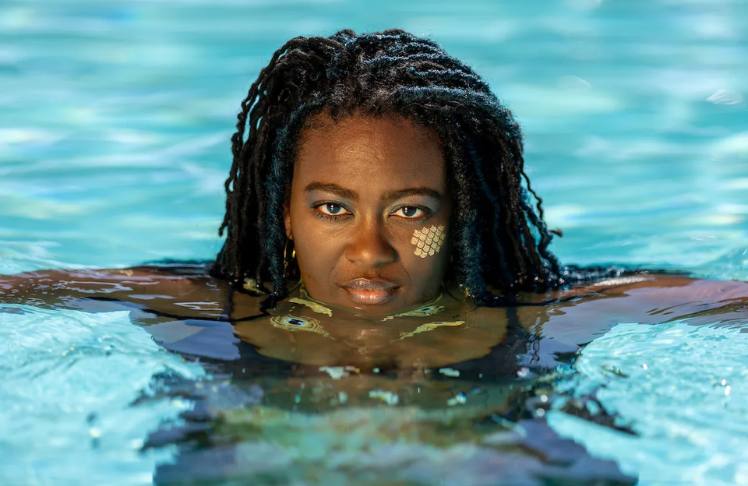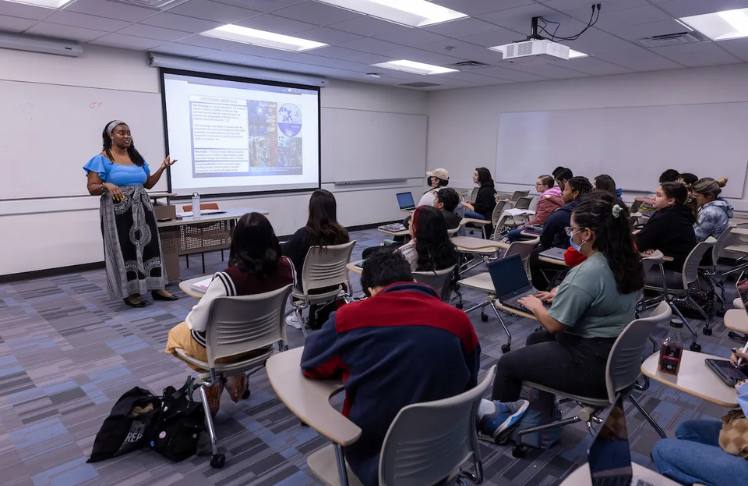
When Halle Bailey was announced as the new face of “The Little Mermaid,” white supremacists immediately flooded the internet to protest. Chief among their complaints? That there was no way a Black woman could ever be a mermaid.
Jalondra Davis, an English professor at the University of California at Riverside, strongly disagrees.
Not only can a Black woman be a mermaid, but she says that from books to music videos, mermaids have been an important symbol throughout Black culture, history, and religion for centuries.
“‘The Little Mermaid’ with Ariel wasn’t my predominant relationship with mermaids. I loved that film, but I also saw a picture book, ‘Sukey and the Mermaid,’ and I had the Virginia Hamilton folktale collection, which had some mermaid stories,” Davis says. “I saw Sade as a mermaid in her video for ‘No Ordinary Love’ and thought she was a real mermaid for most of my childhood.”
In fact, as far back as the 1500s, Black folks have associated mermaids and “water spirits” with serving as protectors of the enslaved Africans who were stolen from their homes and forced to voyage across the Atlantic Ocean during the Middle Passage.
“In most of the children’s literature I’m reading, it’s mostly Yemaya or Mami Wata who are usually the central mermaid in the text, who are either watching over or traveling with people through the Middle Passage,” Davis explains. “You can’t talk about this without talking about these cosmologies, these religions, and these deities because that is what the mermaids are in African-derived traditions.”

hen Davis began teaching about the link between mermaids and Black history, she, like Bailey, received plenty of backlash. Many parents and faculty argued that there was no academic relevance to her teachings. Still, Davis remained dedicated to her work because, as she explains, mermaid stories and lore allow for a unique and engaging lens through which students can learn about the intricacies of Black life across the diaspora.
“Yes, I talk about mermaids and teach about mermaids, but anything that I’m writing about or teaching about is using that thing as a lens to look at deeper and more serious things,” Davis says. “I’m using mermaids as a lens to look at the relationship between Black people to history.”
Davis is drawn to Black creatives that aren’t throwing away history but finding ways to work with it, especially in ways that are not re-traumatizing.
“The kinds of mermaid stories that I’m looking at are providing opportunities for experiences of joy, healing, and catharsis, while still bearing witness to a history I don’t think we ever need to put behind us.”
Davis encourages folks to support “The Little Mermaid” when it comes to theaters on May 26. However, this mainstream film adaptation is not the only way to learn about the tradition of Black mermaids.
For parents wanting an engaging way to get their children interested in Black history, culture, and religion, Davis recommends introducing them to books like “Josephine Against the Sea,” “Skin of the Sea,” and “Rise of the Jumbies.” You can also learn more about the intersections between Black life, Black mermaids, and aquatic culture on Davis’ podcast Merwomanist.
“We all deserve to see ourselves in the stories that we love,” she says.















